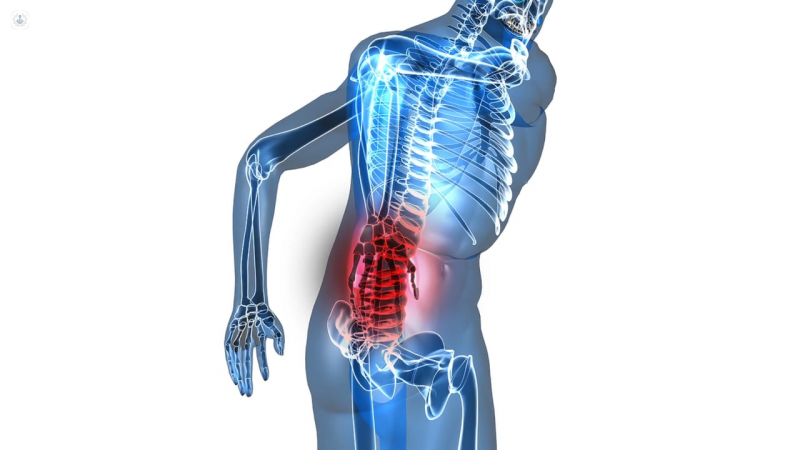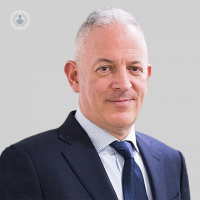Is treatment for haemorrhoids always necessary?
Written by:Many people will experience of haemorrhoids (piles) at some stage during their lifetime. There are different degrees of haemorrhoids, and each individual may or may not want them treated. To tell us more, leading expert colorectal and general surgeon, Professor Richard Cohen, has explained what options patients have when presenting with haemorrhoids.

What do haemorrhoids (piles) look like? What symptoms do patients have?
Haemorrhoids can present in many different ways. The most common presentation is a patient who experiences bleeding from their back passage when they open their bowels. This is usually painless in the case of haemorrhoids, and if pain is an aspect of the symptom, it's usually due to something else, such as an anal fissure.
Patients with haemorrhoids also sometimes present with prolapse, where the haemorrhoids either permanently sit outside the back passage or come out when the patient opens their bowels, and, occasionally, have to be pushed back inside manually by the patient. It's a condition that people live with for quite some time, but it's also a very treatable one if the patient wishes to have their symptoms alleviated.
What are the most common causes of haemorrhoids?
The most typical causes of piles or haemorrhoids are actually unknown. I have spent a substantial part of my career with colleagues doing investigations into exactly why haemorrhoids arise and why patients get haemorrhoids.
I think it is just a very common condition, and it is represented by cushions of tissue inside the back passage that contain both arteries and veins. They get stretched, and the cushions get pushed outwards, giving rise to different degrees of haemorrhoids.
So, some patients have purely internal haemorrhoids which might just bleed, and other patients have a mixture of internal and external haemorrhoids that are covered with skin that they can feel which they find unsightly or uncomfortable. A handful of patients just have external haemorrhoids, skin tags or skin-covered haemorrhoids.
What should patients with haemorrhoids do or avoid doing?
I think if you have haemorrhoids, the first thing you can do is try lifestyle measures such as increasing the amount of liquid that you drink and increasing the amount of fiber in your diet. There is no question that softer stools are easier to pass than hard stools, and softer stools will help alleviate the symptoms of haemorrhoids.
Is there any way to prevent haemorrhoids?
The honest answer is no, I do not believe that there is. I think if you are susceptible to developing haemorrhoids, it is likely that you will. Indeed, I have patients who tell me that their piles or haemorrhoids run in the family.
Professor Richard Cohen can guide you when it comes to treatment for haemorrhoids. If you are experiencing piles, or would like more information, you can schedule a consultation via his Top Doctors profile today.


